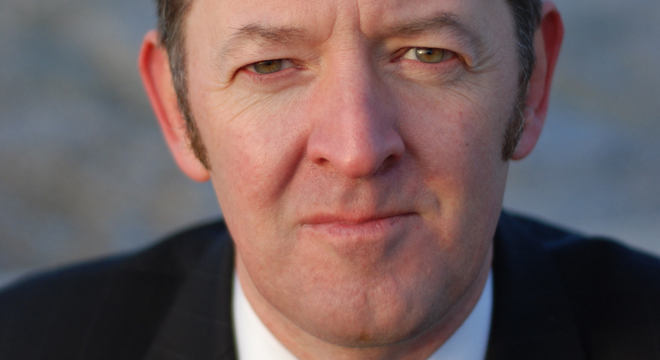New Yorker staff writer John Cassidy recently talked to TPM about the presidential election, transitioning to blogging and how he hopes his writing infuriates both the major campaigns.
What are your media consumption habits? What do you read?
Like everybody else, I’m tuned into the internet for the day. I get the Times at home and the Financial Times. I’ve gotten those for many years. I used to get the Post and Wall Street Journal, but I’ve dropped them. I wake up and scour the wires and see what the news is. I look at the political sites. I’m not really a regular blogger, I don’t have to cover everything in real time. I use Twitter as a news service, especially if I don’t have anything to write about yet. It is often useful, sometimes you get something you didn’t notice. I think Twitter is very useful in that way.
As a writer, how have you found the transition to blogging?
David Remnick asked me if I’d spend a year blogging the election. It sounded like a good idea, an intriguing idea. I’d been writing nonstop about the financial crisis, and was a bit worn out by it. The idea of writing about something different for a while seemed like it would be fun.
To me, it’s a welcome change. I’d been doing those great long tedius pieces for 15 years, so the idea of doing something short and spontaneous and maybe not too serious is a welcome change. At the New Yorker, everything goes through the machinery, that’s the great strength of the New Yorker, that it’s not spontaneous. Everything is put through the machine. It means I’d often spend three, four, five months on a single story. I have a newspaper background. I kind of missed getting involved in the daily news cycle. This was a way of doing that.
I write things that hopefully enrage the Romney campaign, but also anger the Obama campaign. I basically write the second thing that comes into my head. I don’t write the first thing.
What are you excited to be learning and finding out right now?
Two things: the actual experience of being an online writer is a big learning process for me. Writing for the New Yorker magazine is not exactly new media. I wrote a book about the internet bubble. I didn’t have a lot of experience writing online. It’s a different sort of ecosystem. Everything’s got advantages and disadvantages. It’s exciting to me because it’s new to me. The primaries were great, just a great news story every day, characters were appealing and crazy, there was a natural narrative. As a journalist, you don’t really have to think about it.
What’s the biggest story of the campaign so far?
The biggest underlying story is the two different economic visions that have been offered. I think Obama is right about that. Obama is offering a traditional social Democrat approach on the economy. Romney, he is offering more Reaganomics. That’s the biggest story in the overall scheme. The individual stories: Bain Capital. I’m interested in it because I’ve always been interested in private equity. What Bain has done is put a face on the future of capitalism. You’ve got a guy who’s running for president who was the head of a private equity firm. It’s a new form of capitalism. It’s very interesting to talk about what role private equity has on the economy at large. I’m interested in stories where there’s a large intellectual argument behind it.
The biggest story, politically, so far, is how the Republican primaries have backfired massively. They deliberately brought it on themselves by expanding the primary process. You can see that in the Bain Capital controversy. If the Obama campaign was bringing all this stuff up for the first time now, it would be seen as a politically-motivated hit job. By raising it during the GOP primary and calling Romney a ‘vulture capitalist,’ Rick Perry and Newt Gingrich legitimized the story.
What has surprised you in your transition to blogging?
Instant feedback is obviously one of the things. When I wrote a magazine piece, you might get 10, 20 letters about it. Now you’ve got 200 comments. That’s a big difference. Online, it takes a while to get used to the idea that it’s sort of an ongoing conversation. You’re allowed to make mistakes because of the pace of things. I basically use the commentors as editors, in some ways. I keep an eye on it in case I’ve made a horrible error. That’s good, that’s just part of the ecosystem I didn’t understand before I got involved in it.
I’m still surprised by the amount of stuff that’s out there if you look closely. There is just is an astonishing amount of material on whichever particular subject you want. What I find very useful is the source material that’s out there. I can find economic statistics which used to take a day of calling around, that makes a big difference.
What will you cover after the election?
I have no idea, to be honest. I was blogging before I was doing daily election stuff, but very sporadic and intermittent. I’ll definitely keep a blog, whether it will be a daily or not, I don’t know. I took the decision to throw myself into it for a year and see what happened.
What’s the best advice you ever got?
Journalistically, it was from an old Fleet Street editor, a man who basically said, “Before you write something, imagine that you’re writing for the average punter out there.” I’m always trying to think of what’s actually of import to the average person. Too many journalists write for each other. You get a bit of that on the internet … all of it is self-referential. I’m guilty of that too, internal journalistic conversations. You’re supposed to write for the readers out there, whoever they are. I try to follow that advice.






